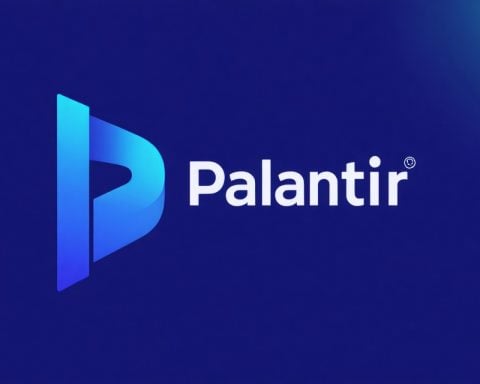Goldman Sachs’ CEO David Solomon introduced a game-changing perspective on the drafting of IPO prospectuses. He highlighted that artificial intelligence (AI) is now capable of composing up to 95% of an IPO prospectus efficiently, leaving only a small segment for human involvement. According to Solomon, the final touches, which account for a mere 5%, are critical as they add significant value that machines cannot replicate.
During his address at the Cisco AI Summit in California, Solomon emphasized the drastic reduction in time and manpower that AI brings to this process. He noted that what once required a six-person team two weeks of work can now be accomplished by AI within minutes. This paradigm shift renders the bulk of the documentation as a “commodity,” underscoring the importance of human oversight in delivering the nuances that matter.
Goldman Sachs employs a formidable team of 11,000 engineers, utilizing AI tools to streamline public filing documents further. This technological advancement is reshaping productivity not just in finance but across various sectors, including coding and compliance.
Despite the potential for enhanced efficiency, Solomon acknowledged the ongoing challenge of monetizing these AI benefits. Major banking institutions are progressively embedding AI into their operations, enhancing overall performance while ensuring that human expertise remains at the forefront of critical decision-making processes.
Reimagining IPO Processes and Its Broader Implications
The rise of AI in drafting IPO prospectuses, as highlighted by Goldman Sachs’ CEO David Solomon, poses significant implications not only for the finance sector but also for societal structures and economic dynamics. As AI transforms tasks traditionally executed by teams of skilled professionals, this shift challenges existing employment paradigms. The automation of such high-level documentation could lead to job displacement within financial sectors, requiring a rapid reassessment of workforce skills and training programs to foster adaptability in a changing landscape.
Moreover, the efficiency gained from AI contributes to the broader global economy, potentially reshaping how companies approach capital raising. With expedited and more streamlined IPO processes, companies may find it easier and cheaper to go public, driving an increase in market entries. This could revitalize stock exchanges and foster innovation by allowing startups to access capital more efficiently, thus influencing economic growth positively.
However, these advancements come with environmental considerations. The energy consumption of large AI models raises concerns about sustainability in data centers, necessitating a balance between technological progress and environmental stewardship. Furthermore, as financial institutions increasingly rely on AI, there is an ethical imperative to ensure that decisions are equitable and transparent, safeguarding against the risk of algorithmic bias.
The future trend indicates that AI will continue to permeate multiple sectors, necessitating a gradual shift towards hybrid models where human intuition and critical thinking complement machine efficiency. This blending may signify a new era in many industries, with long-term significance for how we understand and implement human-computer collaboration.
Revolutionizing IPO Prospectuses: How AI is Changing the Game
The Transformation of IPO Drafting with AI
David Solomon, the CEO of Goldman Sachs, has recently shed light on a transformative development in the drafting of Initial Public Offering (IPO) prospectuses. His insights reveal that artificial intelligence (AI) is now capable of creating up to 95% of an IPO prospectus, significantly reducing the time and effort required traditionally.
The Efficiency of AI
During his address at the Cisco AI Summit in California, Solomon detailed how artificial intelligence has streamlined processes that once required extensive manpower and time. Tasks that previously occupied a six-person team over two weeks can now be completed within minutes using AI. This dramatic shift illustrates that the bulk of the documentation has become a “commodity.” The real challenge lies in the final 5%, where human oversight is crucial for adding the necessary nuances and insights that AI cannot replicate.
Goldman Sachs’ AI Implementation
Goldman Sachs is leveraging its robust team of 11,000 engineers to implement AI tools designed to enhance the efficiency of public filing documents. This adoption of AI not only boosts productivity within the finance sector but also sets a precedent for other industries, including technology, compliance, and beyond. The versatility of AI applications reveals a growing trend among major corporations to incorporate these systems to drive operational improvements.
Pros and Cons of AI in IPO Prospectus Drafting
Pros
– Time Efficiency: AI drastically reduces the time taken to draft IPO documents, allowing for faster submissions and approvals.
– Cost Reduction: With less manpower needed, companies can lower operational costs associated with the drafting process.
– Consistency and Accuracy: AI models can provide consistent outputs, minimizing human error in documentation.
Cons
– Lack of Human Insight: The final touches that provide critical insights and nuanced understanding require human input—something AI cannot yet fully replace.
– Monetization Challenges: Solomon noted the ongoing difficulties in monetizing AI’s benefits, as firms navigate how to effectively harness AI within their operations.
Market Insights and Trends
The integration of AI into IPO drafting is part of a broader trend influencing various sectors. As financial institutions lean more towards technological innovations, it’s crucial for them to strike a balance between efficiency and the invaluable expertise that human professionals bring. This leads to the emergence of hybrid models that combine AI’s speed and analytical capabilities with human creativity and critical thinking.
Future Predictions
As AI technology evolves, we may see even greater applications within the financial sector, including predictive analytics for market trends, risk assessments, and enhanced compliance monitoring. These innovations will likely push companies towards more agile operational frameworks, allowing for quicker responses to market changes and improved client services.
Conclusion
The advent of AI in the drafting of IPO prospectuses represents a significant shift in the landscape of financial documentation. While businesses can reap substantial benefits from efficiency improvements, they must also recognize the irreplaceable value of human insight and governance in overseeing complex processes. As this technology continues to advance, the future of IPO drafting—and indeed the broader financial industry—promises to be both exciting and challenging.
For more information on AI trends in financial services, visit Goldman Sachs.












